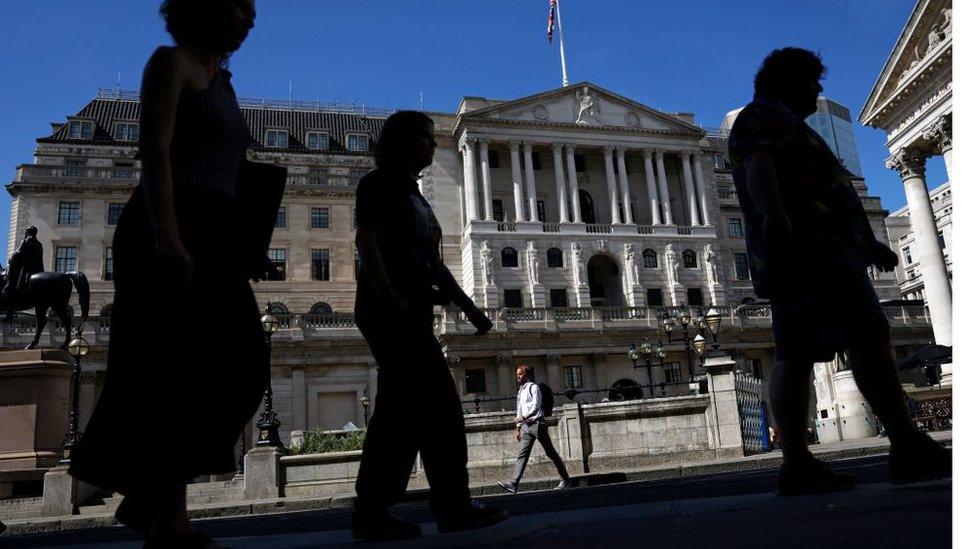Recession: Was the Bank of England right to raise interest rates?
- Published

It is the most piercing of warning sirens set off by the Bank of England.
It announced the largest interest rate rise in a quarter of a century, in an attempt to temper a peak in inflation of 13%.
But it is its prediction of a recession as long as the great financial crisis and as deep as that seen in the early 1990s that is the big shock here.
The Bank thinks that energy bills hitting nearly £300 per month on average, treble their level of a year before, will plunge the economy in the final quarter of this year into a recession.
If global energy costs remain where they are, that recession will then last the whole of next year, with inflation barely below 10% even in a year's time.
This is a proper full fat recession now being predicted by the Bank, and at the same time a 42-year high in the rate of inflation.
It is a textbook example of the combination of stagnation of the economy and high inflation - stagflation.
It obviously will raise questions as to why rates are being hiked into a recession, at a time when consumers are already pulling back from spending.
Mortgage costs are now soaring. Markets expect further rises in the base rate - taking it up to 3% - even during this predicted recession.
That affects those on variable rates, and about half of those set to come off their fixed rate mortgages in the coming couple of years.
The Bank's answer will be that rates are still low by historic standards, and they just cannot provide further fuel for these extraordinary but hopefully temporary high inflation rates, to last for years.
But make no mistake, a forecast such as this, would mean a wrecking ball to the forecasts for government borrowing. Tax revenues would plummet, and spending would increase naturally.
Forget about the £30bn room for manoeuvre or "fiscal headroom" we heard so much about.
But with this level of energy shock, whoever is in power, would need to prepare further massive consumer support, and feasibly, rescue schemes for the energy sector too.
I cannot recall the Bank of England predicting a recession of this length in advance of the event.
And that certainly has not happened in the middle of the selection of a new prime minister. It is the sort of forecast that in other circumstances might have prompted an immediate emergency Budget.
It may just upend all the plans we have heard so much about.
Related topics
- Published5 August 2022


